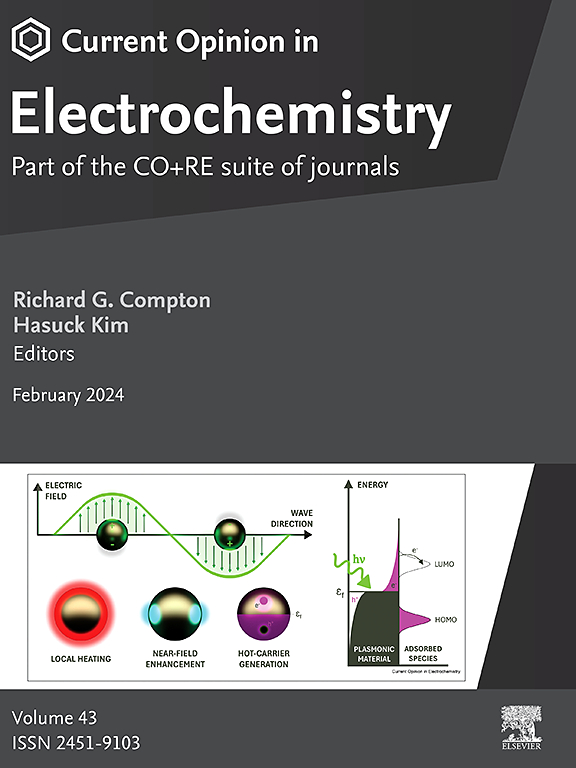深度生成模型的简要概述以及如何使用它们来发现新的电极材料
IF 6.9
2区 化学
Q1 CHEMISTRY, PHYSICAL
引用次数: 0
摘要
随着人类寻求可持续能源解决方案,对电化学的需求也在增加。因此,需要新的和更先进的电极材料。然而,找到满足必要性能的电极是一个挑战。机器学习模型可以以惊人的精度预测催化活性和稳定性等关键特性,从而加速评估材料的过程。然而,在大多数情况下,相同的模型无法解释如何生成新的材料成分。在这里,深度生成模型可以变得非常有价值。尽管与数据可用性和理解这些模型如何工作相关的问题仍然存在,但将深度生成模型与计算机模拟和实验室实验相结合,对于开发下一代电极具有巨大的潜力。这篇简短的综述将展示在相关材料领域使用深度生成模型的最新进展,并强调这些模型如何加速电极材料的发现。本文章由计算机程序翻译,如有差异,请以英文原文为准。
A brief overview of deep generative models and how they can be used to discover new electrode materials
As humankind searches for sustainable energy solutions, the demand for electrochemistry has increased. Thus, new and more advanced electrode materials are required. However, finding electrodes that meet the necessary performance is a challenge. Machine learning models can predict key properties such as catalytic activity and stability with surprisingly good accuracy, thus accelerating the process of evaluating materials. However, in most cases, the same models cannot explain how to generate new material compositions. Here, deep generative models can become very valuable. Although issues related to data availability and understanding how these models work still exist, combining deep generative models with computer simulations and laboratory experiments hold great potential for developing the next generation of electrodes. This short review will show recent progress in using deep generative models in related material fields and stress how these models can accelerate the discovery of electrode materials.
求助全文
通过发布文献求助,成功后即可免费获取论文全文。
去求助
来源期刊

Current Opinion in Electrochemistry
Chemistry-Analytical Chemistry
CiteScore
14.00
自引率
5.90%
发文量
272
审稿时长
73 days
期刊介绍:
The development of the Current Opinion journals stemmed from the acknowledgment of the growing challenge for specialists to stay abreast of the expanding volume of information within their field. In Current Opinion in Electrochemistry, they help the reader by providing in a systematic manner:
1.The views of experts on current advances in electrochemistry in a clear and readable form.
2.Evaluations of the most interesting papers, annotated by experts, from the great wealth of original publications.
In the realm of electrochemistry, the subject is divided into 12 themed sections, with each section undergoing an annual review cycle:
• Bioelectrochemistry • Electrocatalysis • Electrochemical Materials and Engineering • Energy Storage: Batteries and Supercapacitors • Energy Transformation • Environmental Electrochemistry • Fundamental & Theoretical Electrochemistry • Innovative Methods in Electrochemistry • Organic & Molecular Electrochemistry • Physical & Nano-Electrochemistry • Sensors & Bio-sensors •
 求助内容:
求助内容: 应助结果提醒方式:
应助结果提醒方式:


